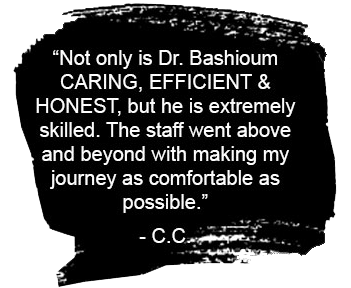Meliss’a Blog: Howdy Neighbor!
September 29th, 2010
The day we bought our house was the day that I became a very lucky girl, because along with my dream home, came a plastic surgeon right across the street. I always told my friends, “One day I’m going to see that Doctor. When, I didn’t know- but definitely after I get done having kids. In the meantime, I’m going to work out this padded bra solution and my ever-so-reliable “chicken cutlets” that I bought, by the way for $65, and I am going to find me some cleavage!”
The cutlets, some refer to them as falsies, are instantaneous cleavage enhancers. They’re squishy, flesh colored inserts that I wore in my bra to give me the shape I needed in a second. They gave me a fuller and very convincing look to perfectly compliment the shirt I was wearing. But it was all just temporary, especially in the bedroom, where I absolutely wanted to feel my most sexy! I’m a woman, just stepping into my 30’s, sexy is everything to me! I’ve worn my enhancers for 5 years, not everyday, but let’s say more times than not. And it wasn’t too long ago that I actually lost them, thanks to the help from my lovely children, who found excitement in playing with them. I was totally bummed when I realized they got left behind at a hotel we were previously staying at. Boy was I sad, I felt like I had lost a great friend.
This episode gave me a reason to pursue a more permanent solution, a breast augmentation. My husband and I played around with the idea for 3 months, and just recently booked my consultation appointment with Dr. Bashioum. I don’t often times play “tit for tat” (pun intended!) like I did with the new television, but actually, it illustrates a perfect analogy. Just as much as you like watching a movie on a high def 52″ television, don’t forget the ultimate surround sound, I too, enjoy looking in the mirror at a young confident mother of 3 in Hi- Definition! So it was decided that we would both get our cake and eat it too! My views on breast augmentation have become more open and much more accepting. I have even scheduled my surgery already and I am confident that I will be in good care with Dr. Bashioum and his staff.
Monday Myth’s: Local Anesthesia is Safer than General
August 30th, 2010
Surgery is done by many medical subspecialties. Some of these are surgical specialties like plastic surgery, ENT surgery, and gynecology. Most of these surgeons have privileges in hospitals and out patient facilities called surgi-centers. They generally perform all types of anesthesia including local, sedation and general and the safest and most comfortable anesthesia is selected, based on the surgical task at hand.
It is important to select a physician that has surgical privileges at a hospital for the procedure that you are having, as it often serves as a level of assurance that are judged capable by that hospital.
“Local anesthesia is safer than general anesthesia.” Understand that all anesthesia presents some risk. For the simplest of surgeries (mole excision, eyelid surgery, hair transplant), local anesthesia is safe and works very well. However, as surgeries become more complex and involving larger areas (liposuction, tummy tucks), the amount of local anesthesia necessary for patient comfort increases to the point where toxicity is a risk. In these situations, local anesthesia can be more dangerous than general anesthesia.
Finally, when general anesthetic or IV sedation is used, your well-being will be carefully monitored by a nurse anesthetist and/or an anesthesiologist. This added “pair of eyes and ears” goes a long way in ensuring your safety. It is also important to understand the accreditation of both the facility and the physician. There are several websites to check this status for physicians such as, The American Board of Medical Specialties. Surgi-centers or ambulatory surgery centers (ASC), sometimes called outpatient surgery centers or same day surgery centers are also certified. The three main accreditors of ASC facilities are American Association for Accreditation of Ambulatory Surgery Facilities (AAAASF), Accreditation Association for Ambulatory Health Care (Accreditation Association or AAAHC) and The Joint Commission.
